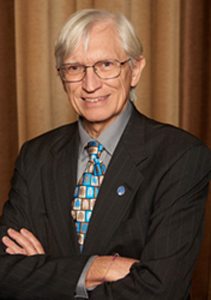Program Information
How To Be A Journal Referee

S Becker
J Boone
C Orton
G Starkschall
B Thomadsen
S Becker1*, J Boone2*, C Orton3*, G Starkschall4*, B Thomadsen5*, (1) NYU Medical Center, New York, NY, (2) UC Davis Medical Center, Sacramento, CA, (3) Wayne State University, Grosse Pointe, MI, (4) UT MD Anderson Cancer Center, Houston, TX, (5) University of Wisconsin, Madison, WI
MO-E-105-1 Monday 3:00PM - 3:50PM Room: 105Being a referee for a journal article is an important yet daunting task. It is especially worrisome for someone who has little reviewing experience. It is important to remember is that it is an honor and perhaps a duty, but not a burden. Someone considers you to be an expert in the subject and it is with that mindset that you should approach the task.
Each part of the review process has its own difficulties:
• Grammar and Language: How much of this do you need to do? Does poor grasp of the English language warrant rejection. Is it effective or excessively verbose?
• Science: Is this project novel? How do you determine that? How similar can it be to other previously published manuscripts?
• References: Are the proper studies referenced? How much does this affect the review?
• Methods: How do you determine if the methods are sound? How much can you suggest without trying to be a collaborator?
• Results: Are graphs and tables being utilized wisely? Are there an excessive number of them?
All of these issues are important part of the review process and need to be considered. But how do you weight them in your final recommendation and communicate them to the authors and editors? This panel of senor medical physics, which has extensive experience in refereeing, will help guide the audience through the entire review process. These experts will share their experiences and methods to help new referees best prepare for the opportunity of reviewing manuscripts.
Learning Objectives:
1. Learn the role of the referee and what is expected of them.
2. Learn how to perform a review.
3. Learn how to communicate a review with authors and editors.
Contact Email:

